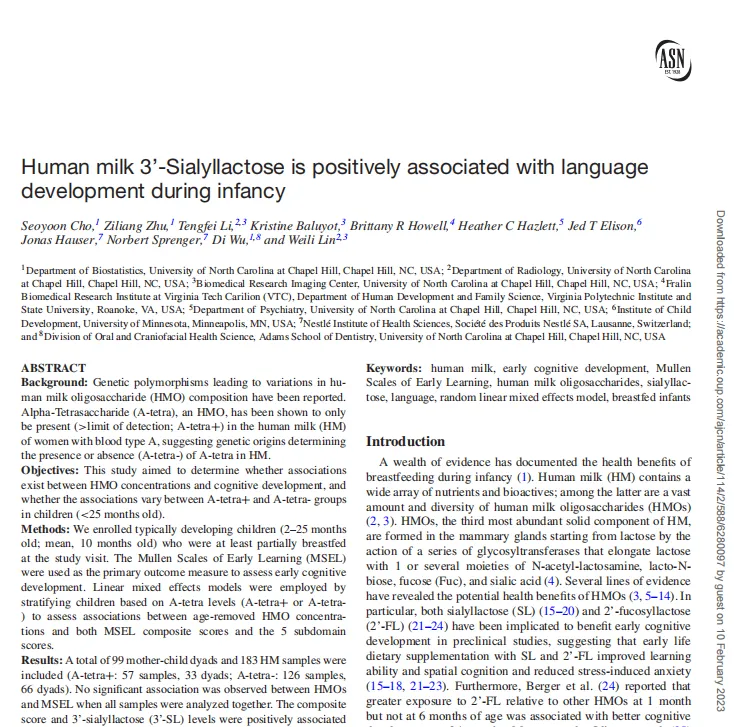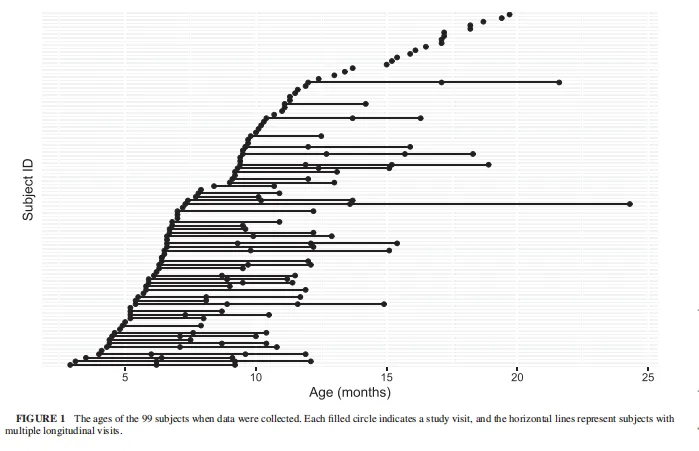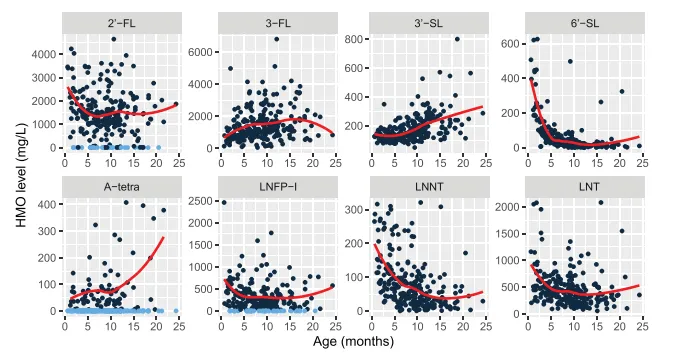- 467
- HENGLU NEWS
Human milk is the optimal nutrition for infants in the early stages of life, with immune-regulating and anti-infective properties. Breastfeeding forms the foundation of lifelong health for infants, providing them with an ideal, balanced diet and protecting them against illness.
Nutrients in human milk, such as proteins, fats, carbohydrates, minerals, and vitamins, are present in optimal amounts and proportions, making them easily digestible for infants. Additionally, human milk contains unique human milk oligosaccharides (HMOs), which serve not only as prebiotics but also help defend against intestinal pathogens, maintain gut microbial balance, nourish the small intestinal mucosa, and regulate immunity.
Human milk oligosaccharides are a complex mixture of oligosaccharides found in human milk, the third most abundant solid component after lactose and fats, and they play significant physiological roles. Human milk oligosaccharides are crucial for infants' growth, development, and health. Recent research has shown that beyond promoting beneficial bacteria colonization, inhibiting harmful bacteria, and enhancing immunity, human milk oligosaccharides are also essential for infants' language and cognitive development.
Recent studies have found a positive correlation between human milk oligosaccharides and language development in infancy, with a greater impact observed in children over 12 months.
This research, conducted by a team from the University of North Carolina at Chapel Hill, examined eight types of human milk oligosaccharides (published in the top nutrition journal “The American Journal of Clinical Nutrition”) and revealed the connection between human milk oligosaccharides and language development in infants.

The study recruited 99 mother-infant pairs with children aged 2 to 25 months (average age 10 months) who were developing normally. The infants were breastfed for an average of 14.4 ± 4.95 months, and 183 human milk samples were collected. Researchers used the Mullen Scales of Early Learning (MSEL) as a primary measure to assess early cognitive development, examining five areas: fine motor, gross motor, visual reception, receptive language, and expressive language.

The results showed that receptive language scores increased by approximately 1.82 points for infants under 12 months and 16.74 points for those over 12 months. Researchers concluded that "Human milk oligosaccharides benefit early cognitive development in infants, and supplementing human milk oligosaccharides early in life can enhance learning and cognitive abilities."

With continued research into the unique components of human milk and their effects, the importance of human milk in supporting optimal neurodevelopment in infants has been firmly established: the unique human milk oligosaccharides in breast milk can promote brain and neural development, enhance cognitive abilities, and support language development.



